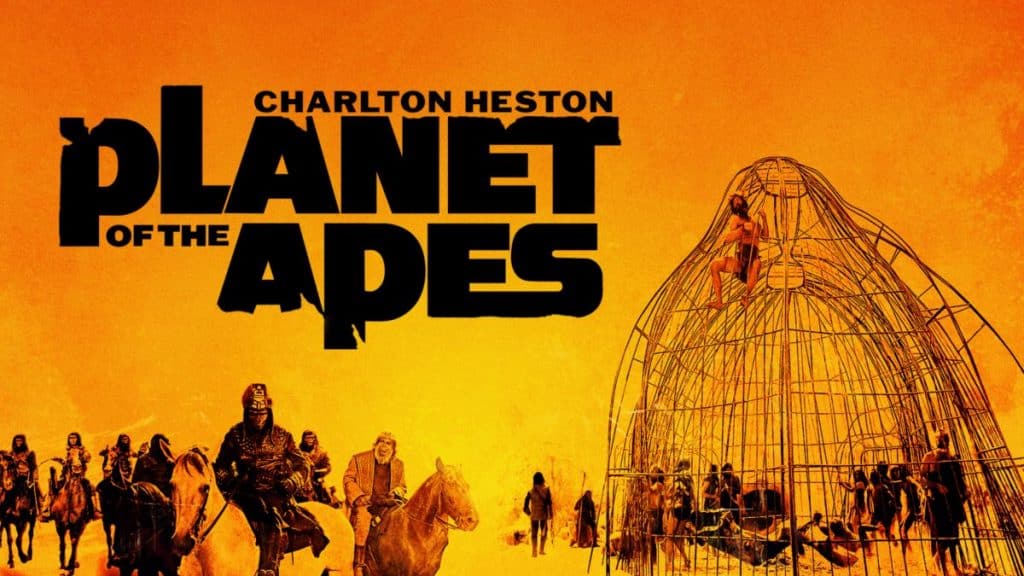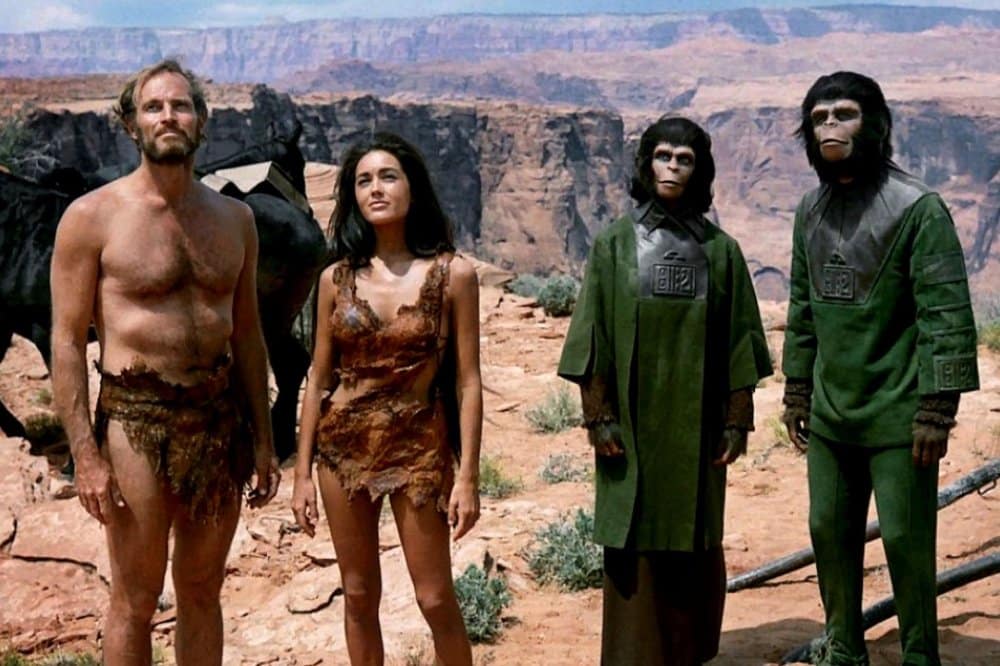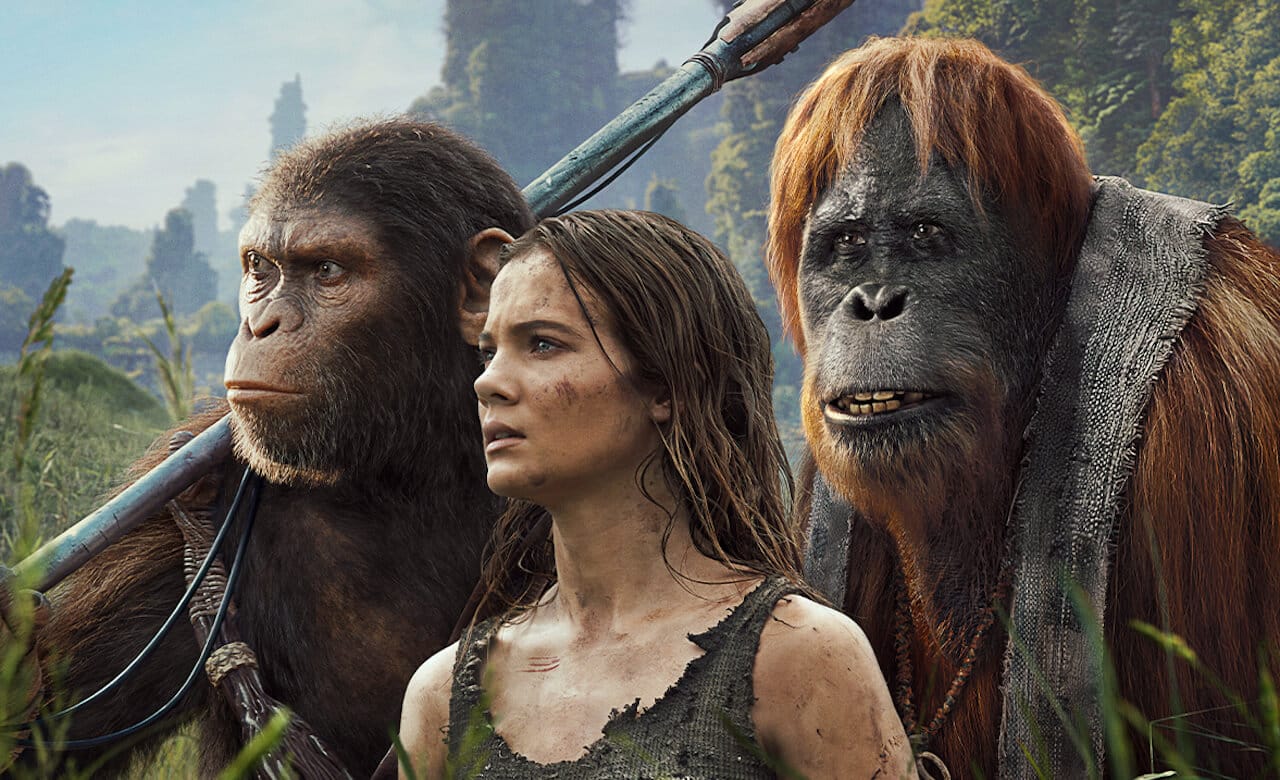
Planet Of The Apes (1968) | Star Retro Review
In this science fiction classic, three astronauts led by Taylor (Charlton Heston) embark on a long-distance space journey, only for problems to lead to crash landing on a seemingly alien planet and being captured by intelligent apes that oversee a caveman-like slave race…
My history with the original Planet of the Apes is admittedly slightly odd. Obviously, the film was released well before my time. So, my first exposure to its pop culture impact that I can remember was a “Planet of the Apes: The Musical” gag in The Simpsons (Season 7, episode 19 if you want to make use of that Disney+ subscription) so I already knew the ending without realising.
It was only when I was at college as a film student that I finally began to gain an understanding of the film’s legacy and got around to watching it on a basic DVD copy from my tutor. On a surface level, the premise reads as ridiculous. Talking apes keeping caveman as slaves. And you’d think that the idea of humanoid apes would be too ambitious for the technology of the late 1960s. Yet for all of this assuming, we instead are treated to a film with plenty to say about human behaviour and entirely convincing prosthetics. “Apes” is an honorary Oscar winner with all of the DNA of a ‘50s B movie.
And truth be told, if you boil this film down to its core components, it should be completely average. Yes, the ape makeup is incredible for its time but it does limit the subtlety of acting for those wearing it. And then, the first act or so of the film where the 3 astronauts crash land isn’t overly spectacular either. It largely exists as a meandering exposition dump while what we assume to be our three main protagonists outwardly ponder their situation. So, why do I still regard the film as a classic? Because Charlton Heston as Taylor and Roddy McDowall as Cornelius (with nods of respect to Maurice Evans as Dr Zaius and Kim Hunter as Zira) give powerhouse performances that drive the movie forward from the second act onwards.
This is particularly impressive on Heston’s part because he also spends part of the film mute. And yet, it is perhaps all of these difficulties that make the character compelling. First, he is forced to watch ape scientist Zira unsuccessfully go to bat for his right to be treated fairly once captured, and then he struggles to fight against his mere existence being regarded as an affront to the natural order of ape society.
I think the parallels to the civil rights movement are fairly obvious but were nonetheless incredibly timely in 1968. I suppose the irony here is that today a film with such an obvious message would be torn apart on YouTube for its overtly political nature, while it was largely enjoyed as a simple sci-fi adventure at the time.
Moving away from the more politically divisive themes for a moment, I also have to greatly praise Evans’ portrayal of Dr Zaius, an ape who uses the shield of science to defend religious zealotry. He is so sure that his species were and will always be the dominant one that he resists evidence to the contrary. Meanwhile, McDowall’s Cornelius serves as a narrative opposite, not necessarily liking the implications of the evidence presented but always wanting to know the truth. Of course, that truth leads to one of the most visually iconic endings in cinematic history, but that’s not for me to spoil.
Unfortunately, I can’t universally praise the film’s narrative structure. Beyond that slower paced opening (which I’ll happily admit does serve a purpose), the film also sags somewhat in its home stretch. The trial scene is strongly acted but it goes on too long and while the ending is legendary, it feels like it drags in the final chase. Especially when you can tell that it’s meant to feel more tense than it does. I think that while the acting from its main characters deserves immense credit, the over-reliance on dialogue-filled confrontations is the main culprit for this occasional sluggishness.
Thankfully, this is another time when I can praise the soundtrack. The opening theme feels fantastically sci-fi with an undercurrent of threat that is used as a motif throughout the rest of the picture. Then we have sudden uses of wood, wind and drums to incite panic in the viewer. There is something inherently epic yet a little delightfully schlocky in the accompanying music that marries perfectly with a film that has a B-movie core yet endeavours to be taken seriously.
In conclusion, Planet of the Apes rises beyond its hokey roots to become a film with something very legitimate to say and with special effects deserving of unqualified praise. However, it fails to keep momentum at times and has a lethargic ending saved by an iconic final scene.
Ranking: 4 stars out of 5
Disney Plus Presentation
Planet of the Apes (1968) is available in a maximum resolution of 1080p HD and offers up to standard 5.1 surround sound on compatible devices. This is in line with the highest quality physical discs available (although it should be noted that finding a Blu-Ray copy outside the US can be expensive).
Unfortunately, once again, there are zero extra features. With no Extras tab selectable on the film’s page, not even a promo clip is available.
Presentation Ranking: 4 stars out of 5
“Planet of the Apes (1968)” is available to stream right now in many countries, including the UK and Ireland, Canada, Australia and New Zealand, the Netherlands and more.
What are your thoughts on the original “Planet of the Apes”?




